Meshell Ndegeocello, like many people, would rather not turn on her camera during Zoom calls. “I want to hear you,” she says. “I enjoy my hearing apparatus. The eyes will fool you.”
It’s for this reason that, during a recent conversation from her home in Red Hook, Brooklyn, Ndegeocello’s only visible presence on-screen was her Zoom display name: “Just a Soul on a Planet.”
It’s a fitting description for the one-time Nineties R&B and dance music hitmaker (1994’s “Wild Night” with John Mellencamp, 1996’s “Who Is He and What Is He to You”) who, in recent years, has completely shifted her method of music-making into a wholly collaborative process that is more jazz-oriented and improvisational.
Nowadays, Ndegeocello’s records tend to highlight the singing and playing of her bandmates more so than herself. That new mode of creation has resulted in the most prolific period of her career, one that has earned Ndegeocello her long-overdue first solo Grammy Award earlier this year (for 2023’s spellbinding album The Omnichord Real Book); a recent Tiny Desk appearance; and multiple 2024 LPs. The first, released earlier this year, was a tribute to Sun Ra.
Her second album of the year is a project Ndegeocello has been working on for the better part of a decade. No More Water: The Gospel of James Baldwin is the stand-alone album version of a theatrical tribute that Ndegeocello has been performing in theaters since 2016, inspired by his 1963 book The Fire Next Time. The album is out today, on what would have been Baldwin’s 100th birthday.
Weaving in the writings of Audre Lorde, with original songs and spoken-word readings from Hilton Als and Staceyann Chin, No More Water is a provocative piece of art that adapts Baldwin’s writings in a way that speaks to modern American life. There are spoken passages and acoustic folk songs about the past decade of lethal police brutality against Black Americans, readings from Baldwin’s own work set to jazz saxophone, and gorgeous gospel-indebted originals.
“It is now December and the world has lost its fucking mind,” Chin says during her spoken-word passage “Raise the Roof. “Christmas trees being erected like dicks amidst the groundswell of Bill Cosby accusers/Coming out of the closet of secrecy/Synchronizing with stories about frat boys growing up rapists.”
The album highlights the close group of collaborators central to Ndegeocello’s recent albums, which are solo records in name only. Members of her band — Justin Hicks, Julius Rodriguez, Abe Rounds, Jake Sherman, Chris Bruce, Kenita Miller, and Jebin Bruni — take over on lead vocals on several songs (Bruce’s vocals on “What Did I Do?” are just one highlight).
It’s all part of Ndegeocello’s evolved sense of music-making. At 55, she considers mentorship to be integral to her own artistic practice. Asked to name some younger artists she’s been listening to, she pauses: “I know the importance of this question,” she says. Asked to describe her role in the solo record from bandmate Hicks that she’s been working on, she bristles at the concept of describing herself as a producer. (“That word is so hard,” she says. “But yes, I am producing him: aiding in the production of his creative work.”)
“I’m not a dinosaur,” Ndegeocello says. “I can see the comet coming. … Eventually you can get caught in a bubble and myopic, but I’ve been so blessed by young people who are kind enough to mentor me. So now I see that it is your cosmic duty, because religion is starting to make me nervous, but I’m realizing, as an elder, that’s what I have to offer: Space and time for you to be heard. And I take that seriously.”
Rolling Stone recently caught up with Ndegeocello to discuss her tribute to James Baldwin, how she relates to her Nineties albums, and why she recently decided to rejoin the Recording Academy.
You’ve been working on the various iterations of your Baldwin project for years. Is this album a culmination of that work, a next step in the project, a new beginning, or none of the above?
Wow, who thinks like that? [Laughs.] It’s not a beginning or an ending, I’m really starting to let that concept go, because I just like being in the moment and seeing how it unfolds. I think our expectations cause us suffering. The Baldwin project for me is just, I get to play the bass, and I really enjoy that. It’s something that comes from a place of sharing, so my ego is not in it. I don’t care if you like it. I’m not thinking about the reception. I want to be like Baldwin and just bear witness to a moment in time. It’s not an ending. It’s more that the potentiality of this piece can go in so many different directions.
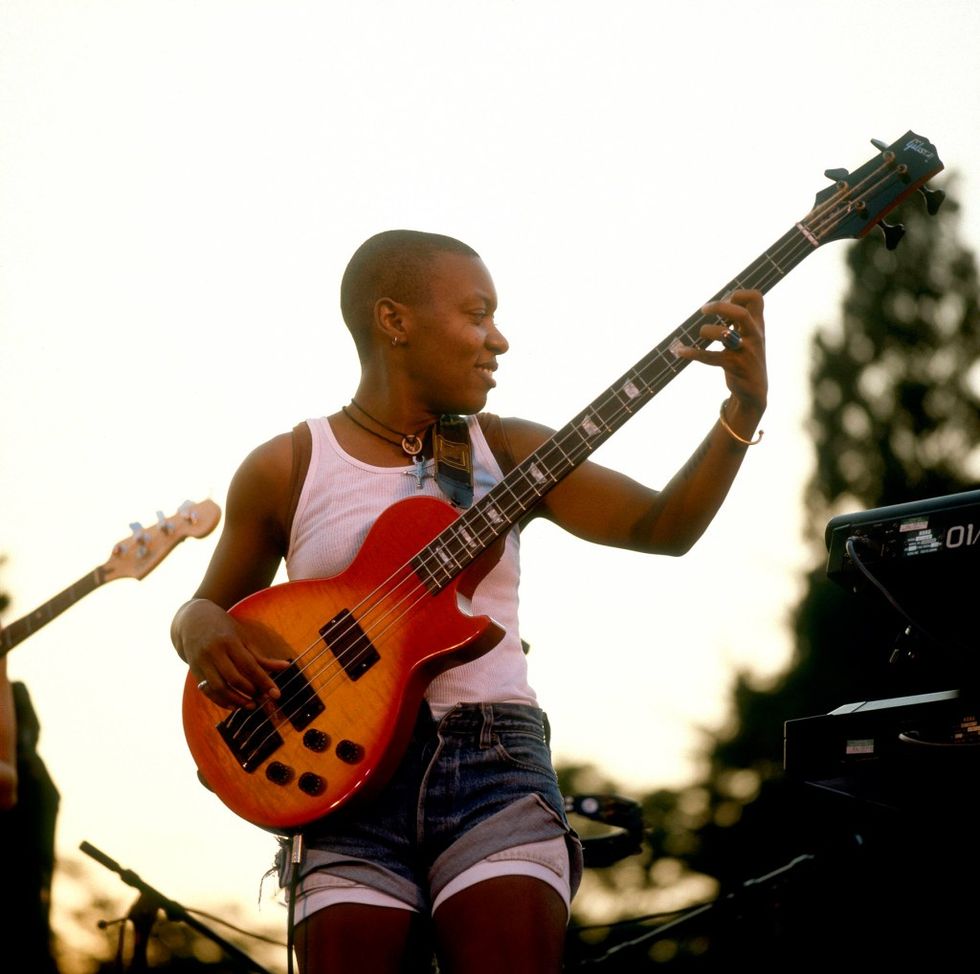
Have you ever spent as long with one piece of music as you have with No More Water, which you originally recorded in 2018?
I did this record so long ago that I was worried it wouldn’t hold up. I had to check my ego. I realized I shouldn’t think that way. It’s a piece of music and it will be heard for what it is. I had to catch myself out of that commercial music standard, to be honest. I’m learning from that.
You were worried about whether the record would resonate because you wrote it so long ago?
Those thoughts were creeping in my mind. It’s really just taught me to have patience and care for the work and believe in it, I must say. That’s what changed in me: I just had to trust myself. I should by now.
The album is interspersed with moving spoken-word passages. What was your role in facilitating those parts of the album?
I had seen Staceyann Chin perform live, and it just transcended any moment in time. And then the #MeToo movement was going on, and we all have daughters in our lives. We were constantly thinking that there is some feminine energy sometimes missing from Baldwin, so that’s why Audre Lorde is in there. We are not single-issue beings, so we just tried to carry on his thoughts with new voices.
Hilton Als came to save us because — I don’t know why I’m telling you this — but for this record, we had Amiri Baraka writings that would be involved, but then I realized all these things are owned by a publishing company. I come from a real hip-hop aesthetic: getting the royalties off my sample versus the effectiveness of people hearing the music. I struggle with that sometimes. I thought: “Everyone should hear Amiri Baraka. Why are y’all being so hard-lined about using him in this piece?” It really irked me.
But one of my mentors is Hilton Als, and it was the right decision because I had to pivot. So Hilton, to me, creates this throughline from then to now to wherever we’re going. There’s something so New York about Hilton as well, and I wanted to give Baldwin back his body, his self that roamed New York and lived in New York and wrote about New York. I’m very happy Hilton is participating, but the experience also just showed me that words are powerful to the point where people own them. That just fascinates me.
So much of your work dispels that idea of authorship and ownership of words and language. I’m thinking of your reimagination of the folk standard “There’s a Hole in My Bucket” on Omnichord Real Book or your interpretative covers of Prince and Bill Withers throughout your career.
I’ve never made a lot of money from publishing, you know what I’m saying? To get money, I still have to go out and play. I mean, I make some, but I’ll never make what I call “My Cherie Amour” money: that’s when you probably don’t have to work another day in your life. So my connection to all of that is different. I get authorship. I understand it and can intellectualize it, but I do feel I’m living in a time where, I don’t know, maybe one has to relinquish their ego and question what is free. It may be more important to be heard. I’m about to watch a Napster documentary, and I remember when that was all happening and there was a clause in my contract that said “new media,” and I said, back then, “This will separate people who want to be heard from those who want to be stars.” I think I’ve always just wanted to be heard.
I read that you have a flip phone. Do I have that right?
Yes, indeed. I don’t mess around. It’s an addiction. It made me not like myself. It made me think I was actually doing something for the world, sitting around, liking. It’s got me in trouble. I’m not a Luddite. Please know that. I like technology. But that screen is dangerous for the way my mind works. I was starting to think Instagram people were actually my friends. That’s when I had to wake up, like, “Let me go chat with my friends!” So now I have what’s called a Light Phone. I can still get directions. It holds like 100 podcasts and 200 songs.
I’ve read you talk about not really identifying with the earliest part of your career in the Nineties.
I do! I’m in my mid-fifties. It’s a little strange singing songs I wrote when I was 19. I’m maybe a bit more modest than I used to be. I’m just a different person. I’m in a different phase of humanhood, and I’ve experienced some things. Remember what I was saying about this Baldwin record: I worried if it held up over time, even though no one’s heard it. With my old records it’s like: Do they hold up over time? I think sometimes they do lyrically, but I had to go back and play that music and it’s just such a different energetic frequency. It just doesn’t come across the same way.
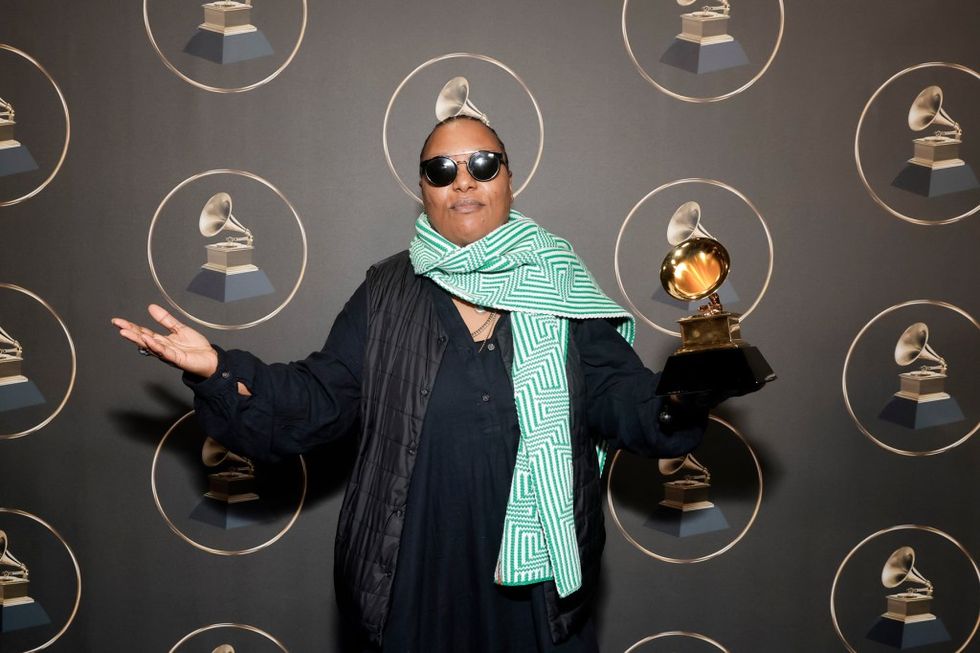
So I’m not thinking so much about whether they hold up. I’m just like, “Is that interesting musically, now?” I don’t know! That’s why doing covers is something…You know how, baking cookies with your mom, you have one recipe you love and whenever you have an emotional state that’s hard to deal with, you go back to these comforting things? That’s how I feel covering music. I grew up in D.C. playing go-go, and the thing was to take a song and make it your own. So when you have a great song, and I have an imagination, I can just live in that song with my imagination and see how I can make it feel different: the art of arrangement. But that’s like a security blanket, because sometimes you have nothing to say. Sometimes you don’t want to sing about heartbreak and pain and you can find, in doing someone else’s song, something you need to say in yourself.
When you sing your older material, is it a process of figuring out what songs still resonate, what songs still interest you?
That’s it exactly. My bass playing is changing because of physical reasons. I played a 30-pound bass for 30 years, and I can no longer do that. My shoulders are like, “We don’t do that anymore.” So I’m playing different basses and I work with a physical therapist. I dance differently. My body’s different. So if I go to play “Boyfriend,” it’s just not gonna feel the same. It’s not gonna be slappa da bass, it’s gonna have more of a Paul Jackson, Headhunters vibe. I’m just a different player. I think I was really full of bravado and lesbian machismo and just like [laughs] was a really different person. I’ve had heartbreaks and changes and I really listen to music differently. I was listening to Broadcast today, and I laid down and I cried. Or listening to PJ Harvey’s Let England Shake as we’re in all these wars. I’m having a different experience with music.
Your records as of late seem so much more invested in the group dynamic and in collaboration. In the Nineties you were a solo star with hit records. Do those two dynamics feel like a meaningful contrast in how you conceive of your music now versus then?
It goes to your origin story. I was fascinated by how Prince and Stevie Wonder played everything, and that ability to control the whole essence of the sound, which I think I do in the first records. There’s some drumming, and I added soloists, but those first records are complete ideas of what I had in myself, musically. It wasn’t until [1999’s] Bitter, or, actually, working with John Mellencamp, where it wasn’t an experience where it’s like “You’re the artist.” It was just like, “Let’s put this track together, and we’re gonna sing in the booth together, and we’re going to be doing this all together.” I was like, “Wow, that’s how go-go was.”
I realized there are few Princes. He was a singularity. My dad played in a big band. I love improvisational music where all those singularities come together: Wayne Shorter, Jaco [Pastorius], Joe Zawinul. I’m realizing, musically, that’s where I’m coming from. I’m hoping you’ll turn [this] into poetry — once you stop having self-hatred and stop trying to get someone to love you because of something that happened in your origin story, it’s really when this softness just allows for so much beauty to come into your life. The true friendship that happens with eye contact and time and space and not instant gratification. That’s what I realize happens in the music, too.
You won your first solo Grammy earlier this year. Is that type of recognition meaningful or totally circumstantial?
Circumstantial. I gotta laugh because the first [Grammy] I get is for my brother Robert Glasper. [Ndegeocello was featured, alongside H.E.R., on the Grammy-winning 2020 song “Better Than I Imagined.”] I have to thank him. But that’s the year I quit the Grammys. Then I got one. Then I had to join again so that I could get tickets to go to the one I got [earlier this year] for Omnichord. I met that guy Neil Portnow, and, you know, I wish him grace. I’m glad that’s over and hopefully this will usher in a period where everyone is valued. But I know it’s a sporting contest. I just like that it’s getting more open and everyone seems to be, at least, considered.
Are there any new singers that are really inspiring you these days?
Ah, I know the importance of this question, to help someone. I really like L’Rain. And to be honest, this person’s already world-renowned, but the record that’s been blowing my mind is the new Beth Gibbons. It’s just so interesting-sounding. New, what does new mean. What is new that you speak of, my love? You mean young [laughs]. You want me to name somebody young.
Now that you put it that way…
I’m joking. This is an old song, but it’s called “Charge It” by Enny, and I’m looking forward to hearing more from them. I love the feel of it, the bounce of it. Oh, and there’s one group I saw at the Lodge Room, O Terno. They’re from Brazil and it’s some of the most interesting music I’ve ever heard.
One of the first times you appeared in Rolling Stone, it was a review of your 1994 show at Irving Plaza. You are quoted saying, “I don’t even know why I do this anymore” onstage.
I was already jaded. Oh, the things of youth. You know what my favorite Rolling Stone was? I’m going to sound like an asshole, but I don’t care. There was a review I was given [for 2002’s Cookie] where it said I “made the record Prince wanted to make” and I must admit, when I saw that I was like, “Wow. That’s my hero. I’m good now.”
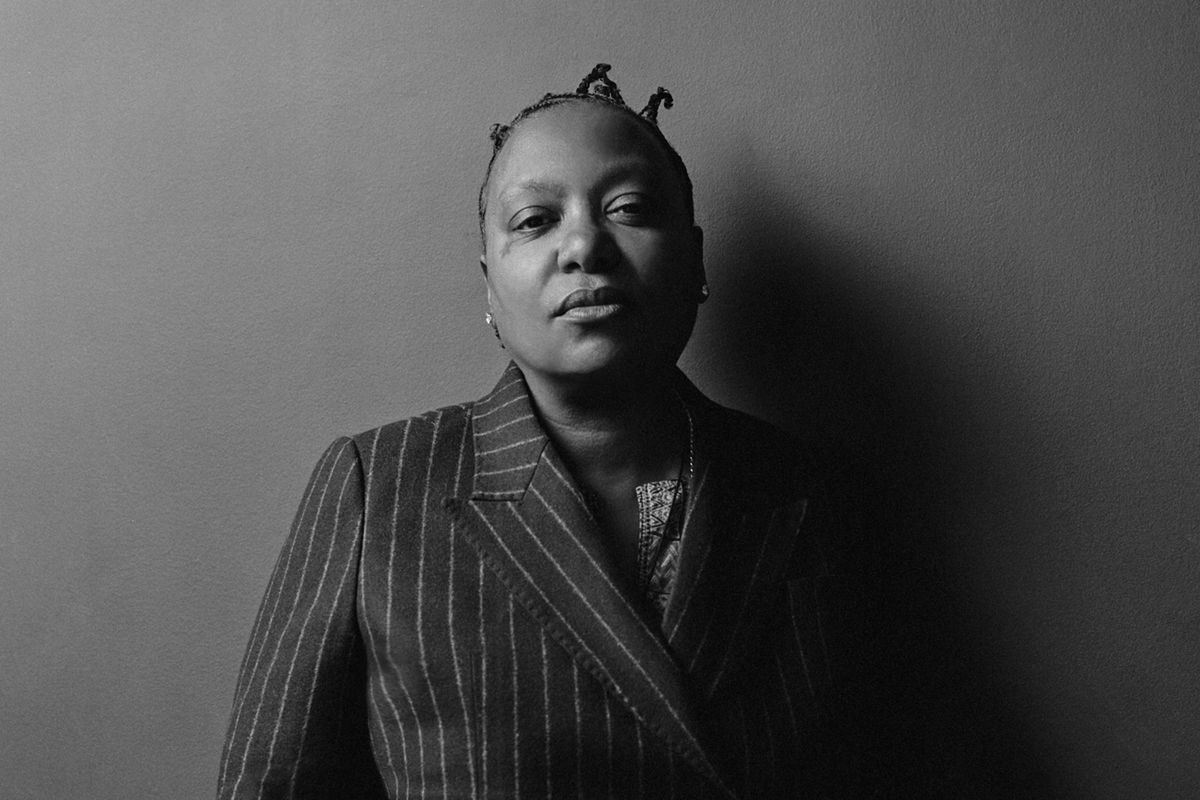





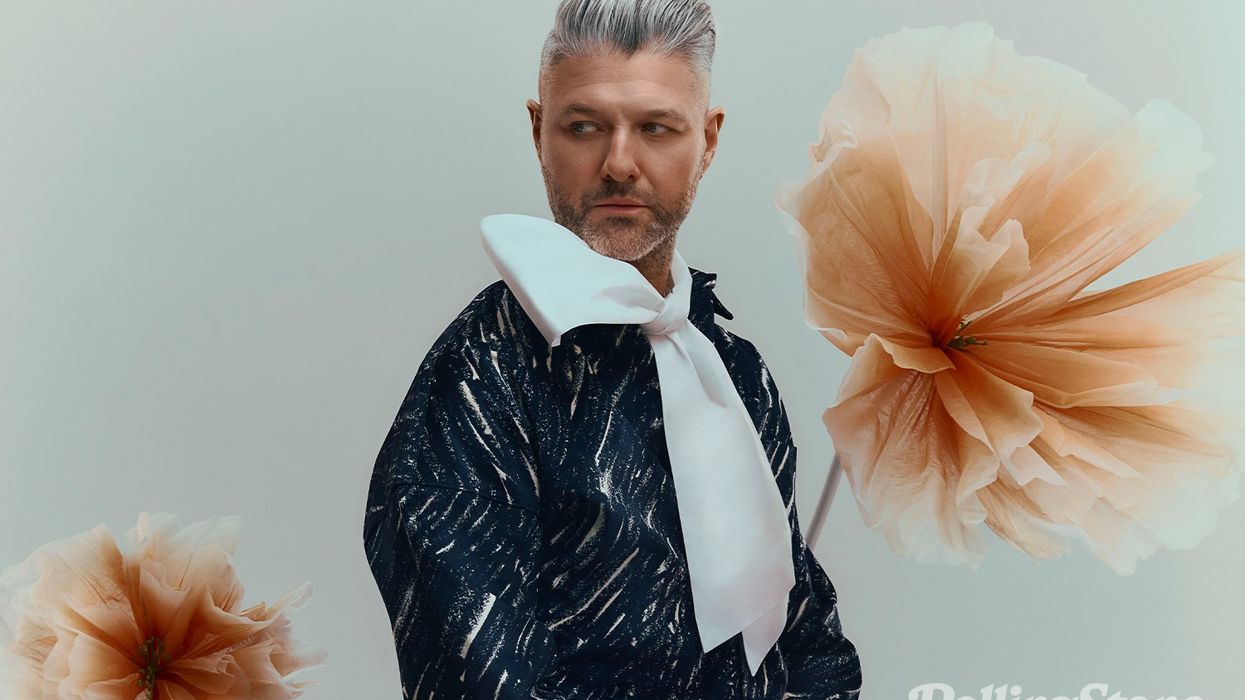
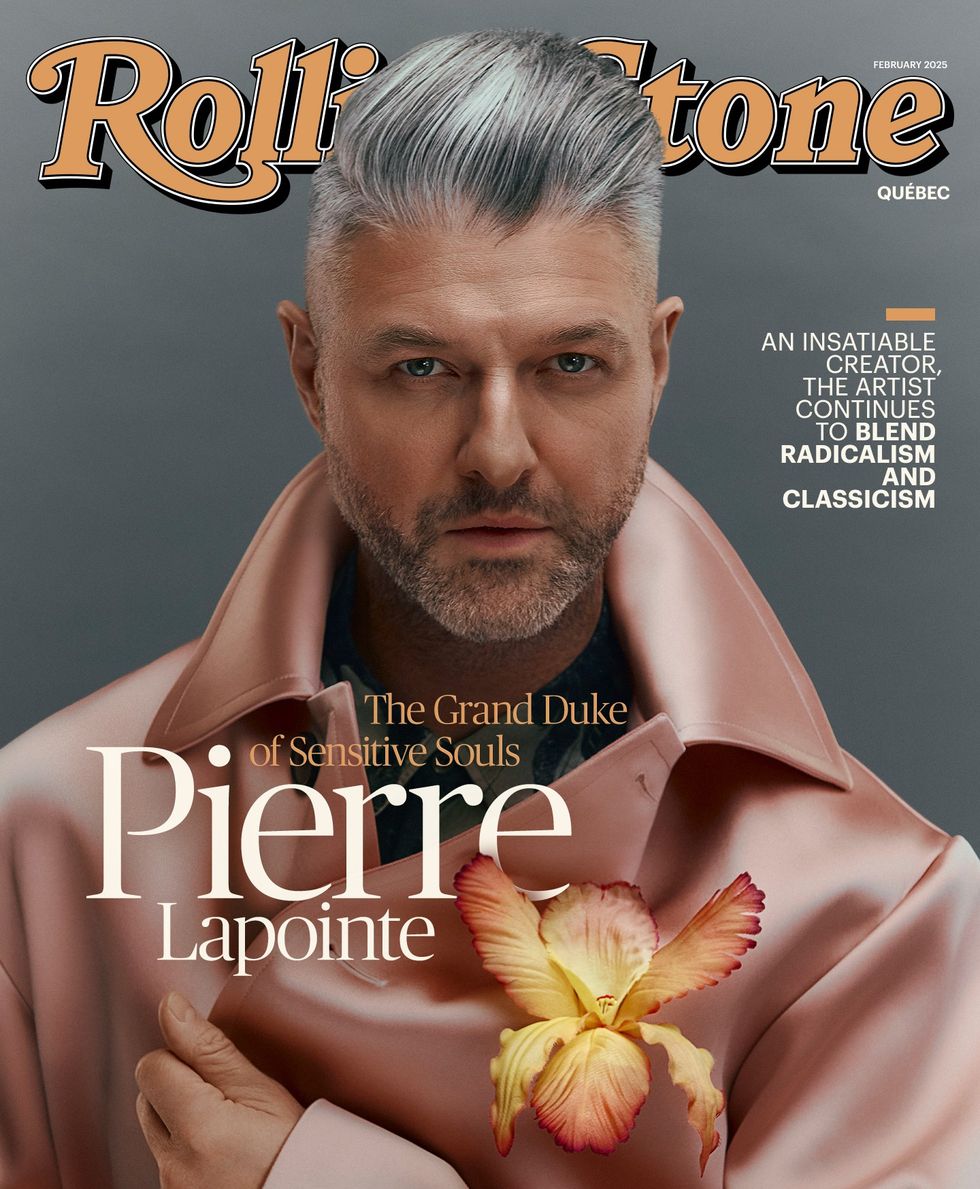 Coat (polyester and wool), shirt (silk), Dries Van Noten, SSENSE.com / Flower (silk), M&S Schmalberg
Coat (polyester and wool), shirt (silk), Dries Van Noten, SSENSE.com / Flower (silk), M&S Schmalberg
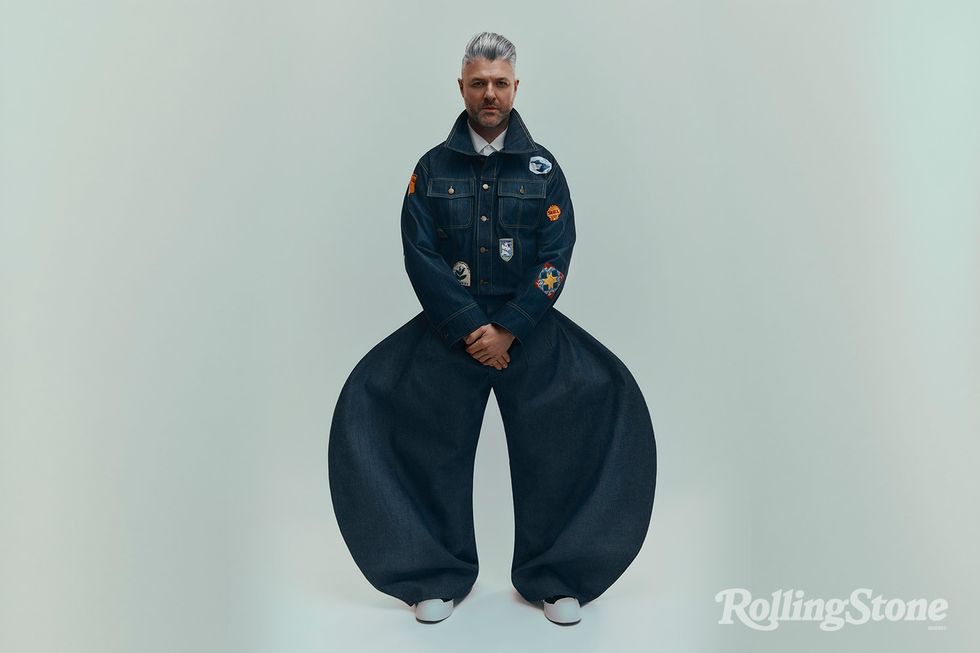 Blouson (denim and hand embroidered patches), WJ Crosson / Shit (polyester), Homme plissé Issey Miyake, Holt Renfrew/Pants from personal collection/ Shoes(canvas), Marni
Blouson (denim and hand embroidered patches), WJ Crosson / Shit (polyester), Homme plissé Issey Miyake, Holt Renfrew/Pants from personal collection/ Shoes(canvas), Marni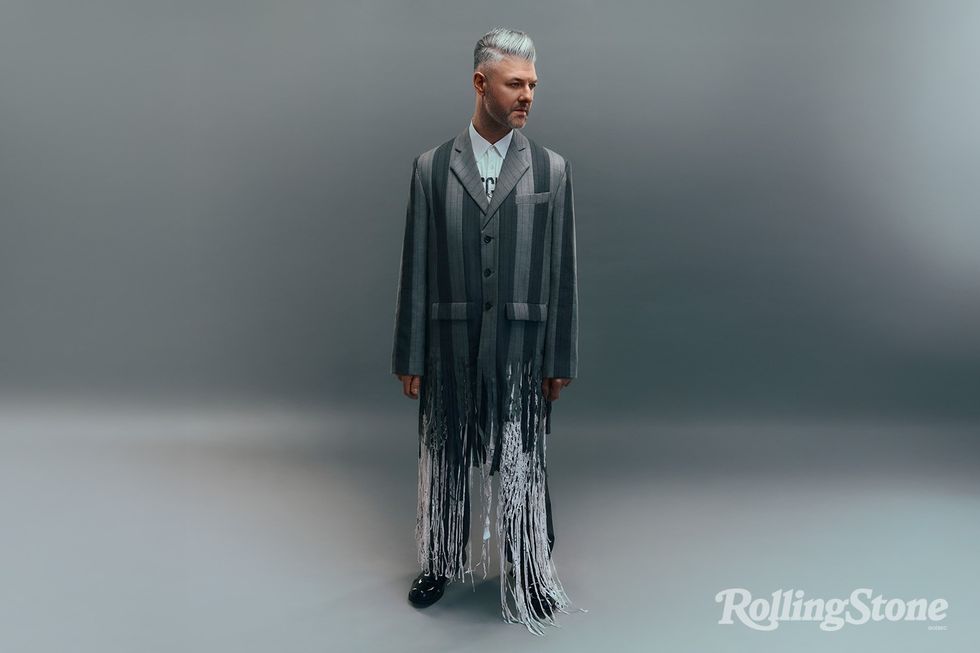 Jacket and pants (virgin wool), shirt (acrylic coated cotton), Moschino / Shoes from Pierre Lapointe's personal collection
Jacket and pants (virgin wool), shirt (acrylic coated cotton), Moschino / Shoes from Pierre Lapointe's personal collection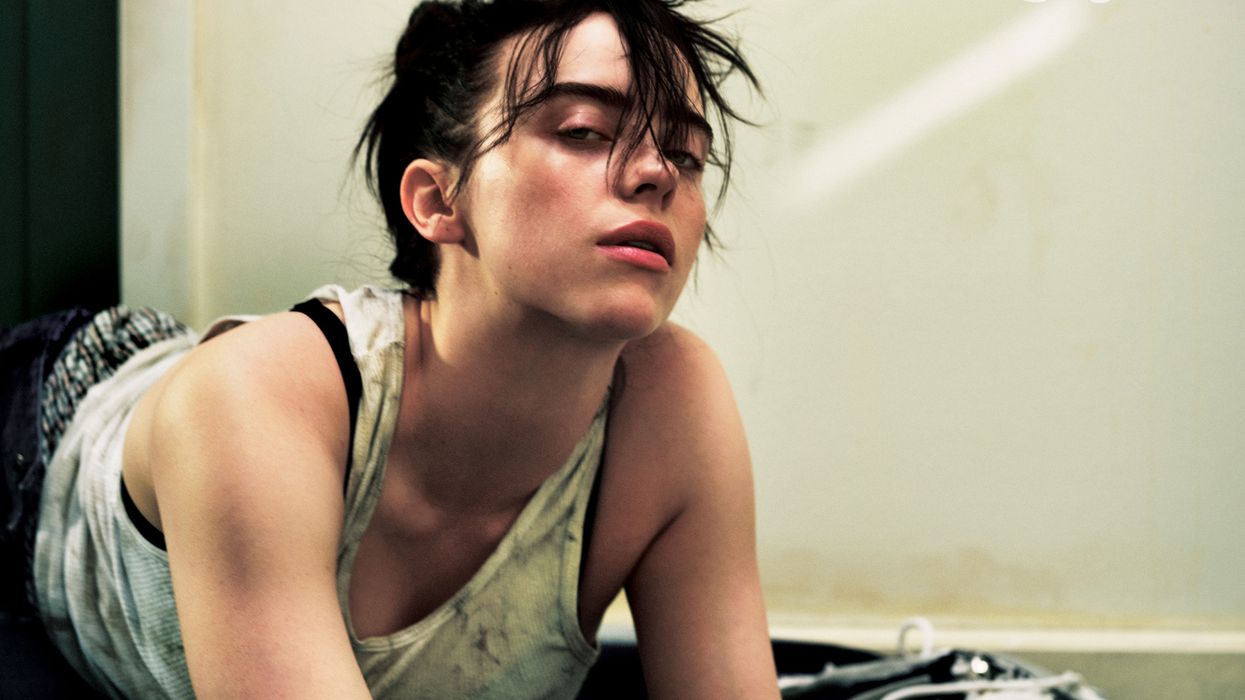
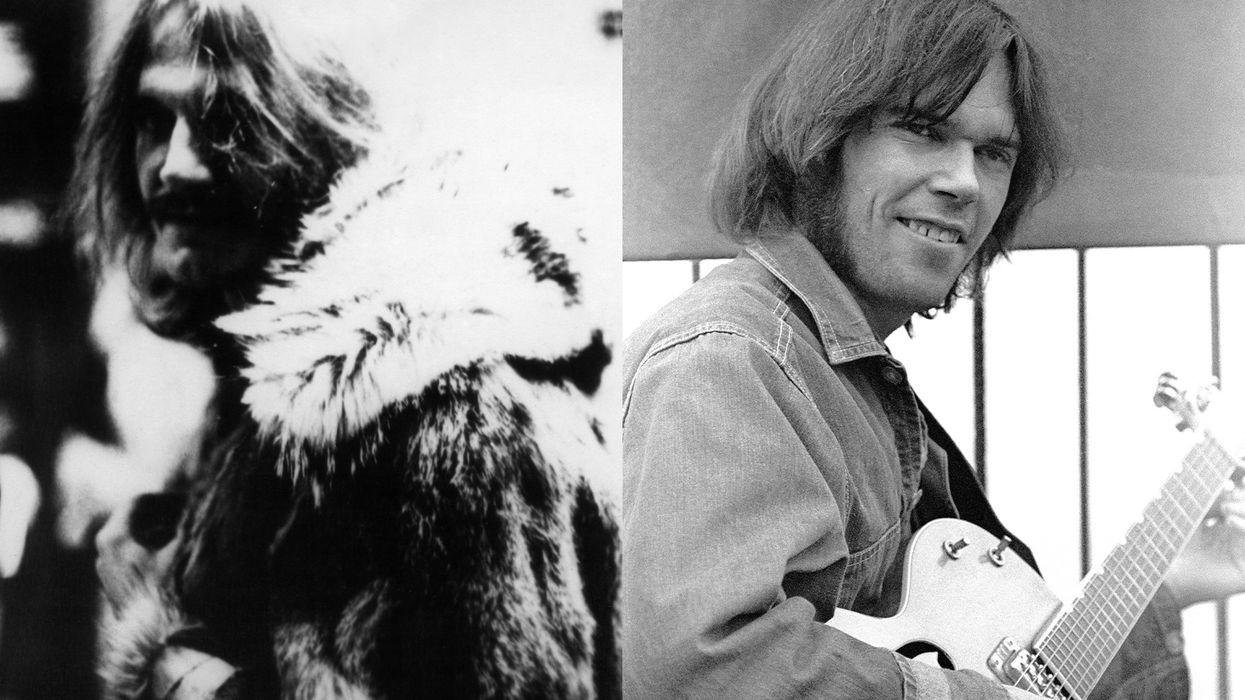
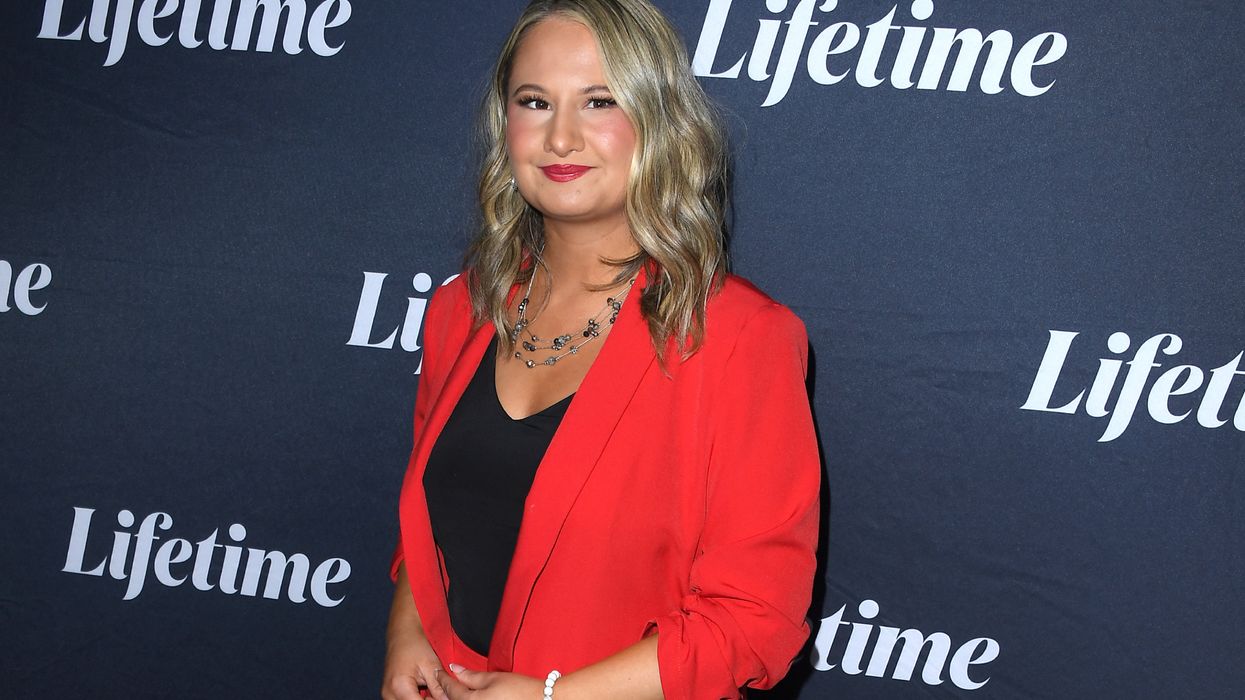
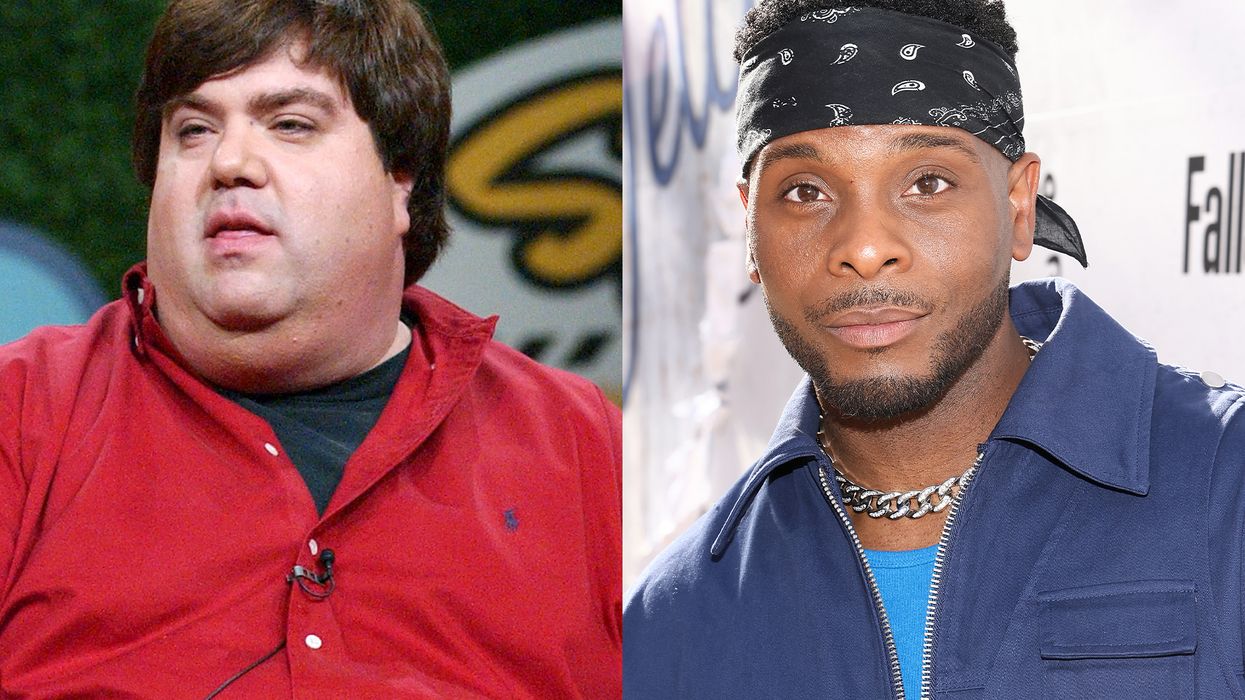
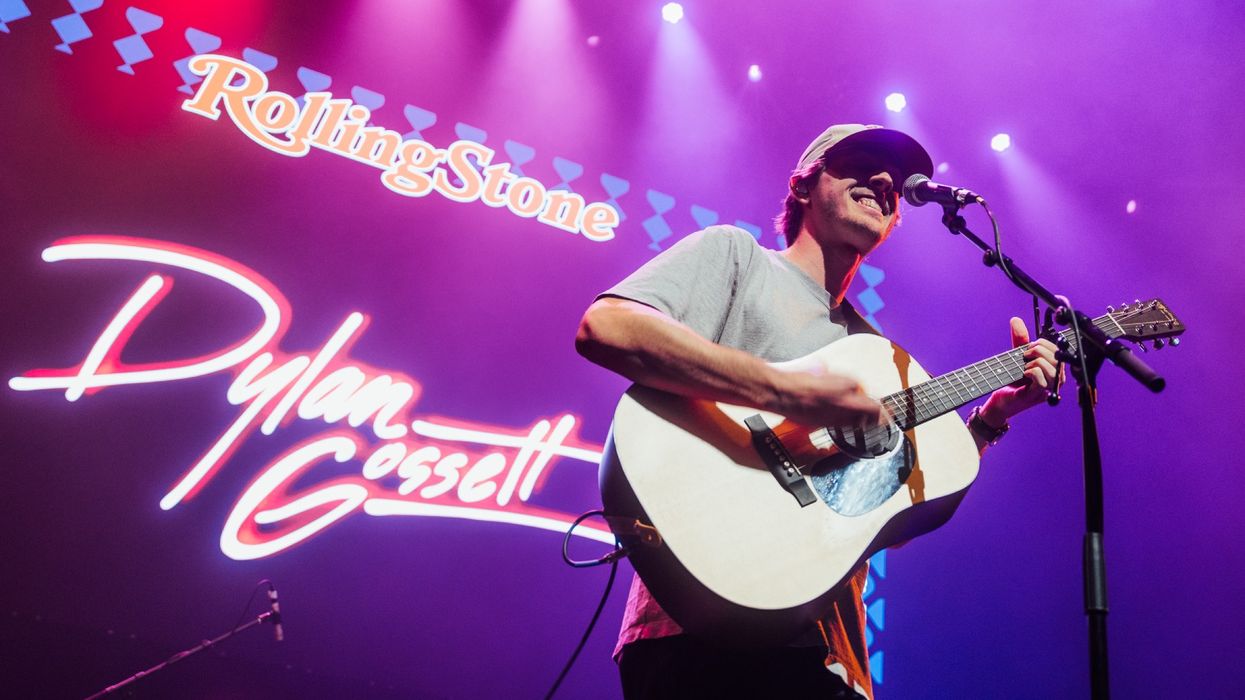

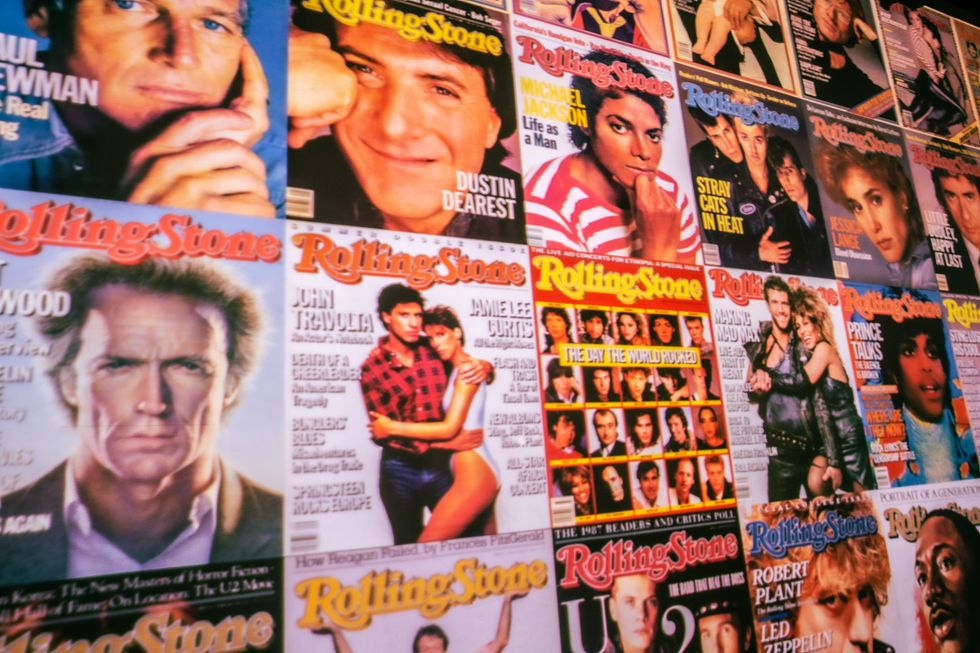
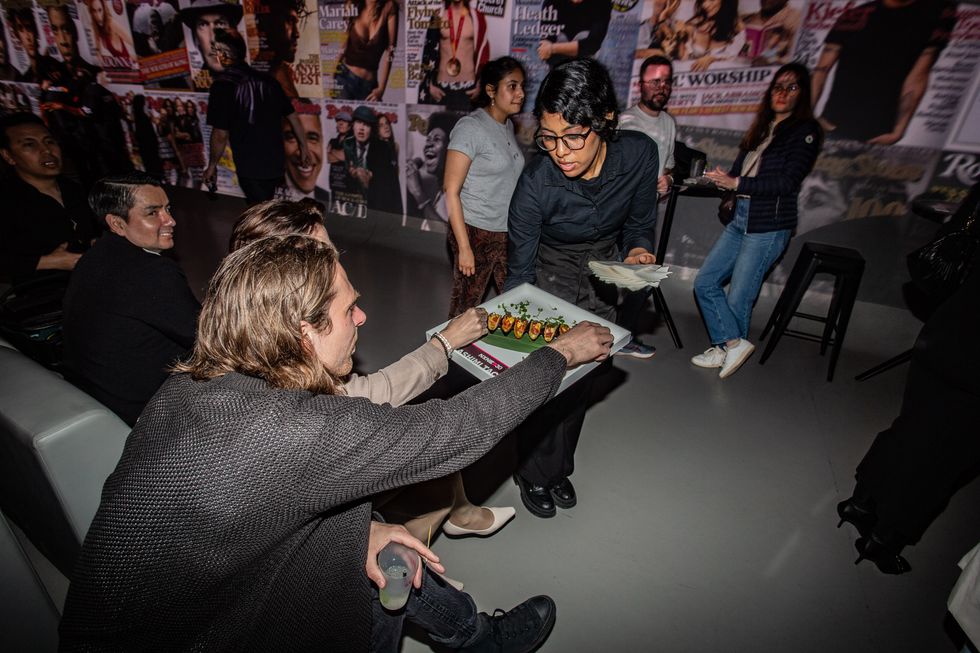 Catering Presented By The Food DudesPhoto by Snapdrg0n
Catering Presented By The Food DudesPhoto by Snapdrg0n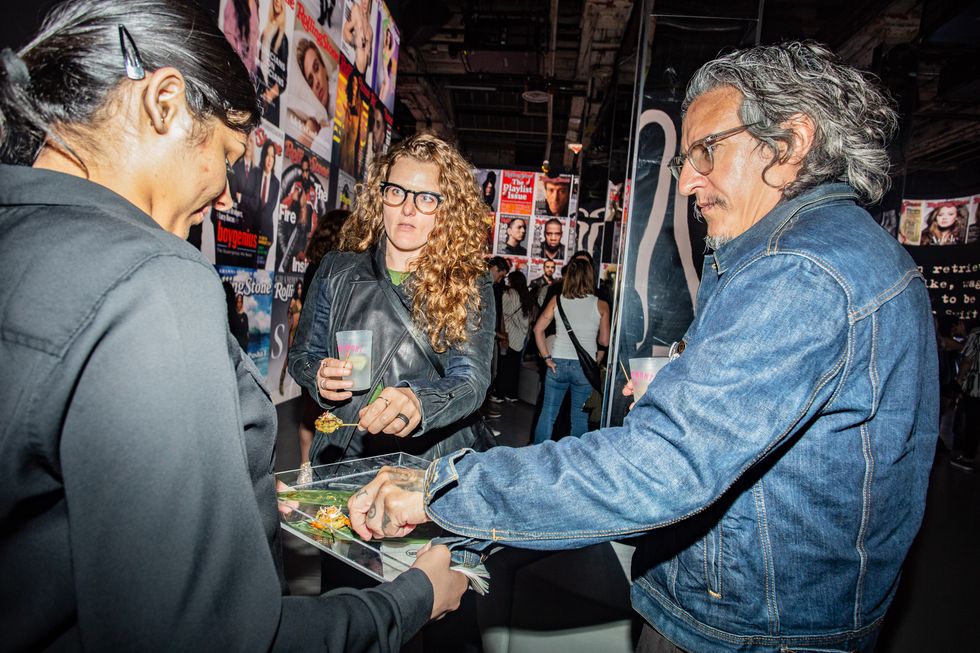 Catering Presented By The Food DudesPhoto by Snapdrg0n
Catering Presented By The Food DudesPhoto by Snapdrg0n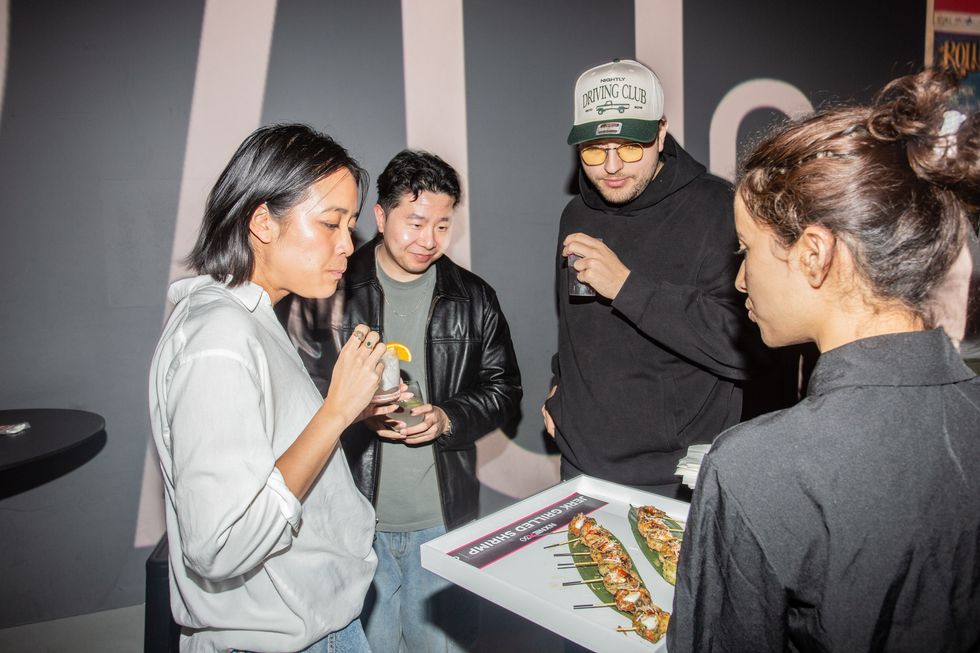 Catering Presented By The Food DudesPhoto by Snapdrg0n
Catering Presented By The Food DudesPhoto by Snapdrg0n
 Photographer: Raphaëlle Sohier / Executive production: Elizabeth Crisante & Amanda Dorenberg / Design: Alex Filipas / Post-production: Bryan Egan/ Headpiece: Tristan Réhel
Photographer: Raphaëlle Sohier / Executive production: Elizabeth Crisante & Amanda Dorenberg / Design: Alex Filipas / Post-production: Bryan Egan/ Headpiece: Tristan Réhel Photo: Raphaëlle Sohier
Photo: Raphaëlle Sohier Photo: Raphaëlle Sohier/ Photo production: Bryan Egan/ Blazer:
Photo: Raphaëlle Sohier/ Photo production: Bryan Egan/ Blazer:  Photo: Raphaëlle Sohier/ Blazer: Vivienne Westwood/ Skirt :
Photo: Raphaëlle Sohier/ Blazer: Vivienne Westwood/ Skirt : 

